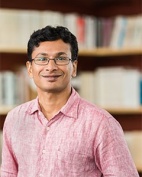
Please join us for our second event, Dams and Displacement
Tuesday, October 18, 2016
Watson Institute,
Joukowsky Forum
111 Thayer St.
Providence, RI
4:00-6:30PM
A common thread of the Mellon Sawyer seminar is displacement as formative of power relations of inclusion and exclusion that have shaped global histories and had long term effects on multiple environments and forms of subjectivity.
The seminar’s second event will focus on the impact of the construction of dams. Large dams represent the most visible ugly face of forced displacement due to development projects by affecting some of the weakest sections of society. By bringing together academics and planner on the same table, this seminar looks at how resettlement of affected groups is planned and what are its long-term socioeconomic implications.

Keynote speaker: Dolores Koenig
Professor of Anthropology, Department of Anthropology, American University, Washington D.C.
Paper: “Issues in Development-caused Forced Relocation: The Manantali Dam Thirty Years after Resettlement”
Dolores Koenig is a specialist in international development, interested in both its challenges and its successes. She is especially interested in finding new ways of talking about development and social change that value the experiences of local people while still taking into account the international context of global inequalities. She works primarily on issues of development-caused forced displacement and resettlement, both urban and rural, in French-speaking West Africa. She worked on relocation in conjunction with dam construction in Western Mali and now is looking at development-caused urban displacement in West Africa and Asia.

Vincent Roquet
Senior Social Development Specialist, Global Programs Unit, World Bank, Washington D.C.
Paper: “Integrating Social Issues into Hydropower Project Planning: Lessons from Rusumo Fall Project, Rwanda and Tanzania, and La Grande Project, North Quebec”
Vincent Roquet holds a Master’s degree in Urban Planning and a B.Sc. in Sociology from the University of Montreal. He has 30 years of private and public sector experience in social, environmental and urban planning. Prior to joining the World Bank in 2013, he was the president for 15 years of his own environmental and social consulting firm in Montreal. He previously worked as a social and environmental sector lead in Canadian engineering and planning firms and as a senior social advisor at Hydro-Quebec, one of the world’s largest public power utilities.
Over the course of his career, Vincent has coordinated long-term social monitoring and follow-up studies in indigenous communities in the Canadian North. He has contributed to research and guidelines on benefit sharing mechanisms for locally affected communities for the World Bank, UNEP and the International Energy Agency. He has conducted training programs in involuntary resettlement and in public participation and communication in a number of countries in Africa and Asia.

Joy A. Bilharz
Professor of Anthropology, Department of Sociology and Anthropology, State University of New York College at Fredonia
Paper: “It’s Still Our Home; It’s Just That We Don’t Live Here Anymore: The Forced Relocation of Allegany Senecas due to the Kinzua Dam in Pennsylvania”
Joy A. Bilharz received her Ph.D. in Anthropology from Bryn Mawr College. Her research interests include involuntary resettlement, sex and gender, and Iroquoian studies. She began research on the Senecas while a member of the faculty of at Mercyhurst College (Erie, Pennsylvania) before moving on to the SUNY College at Fredonia on the southern shore of Lake Erie approximately midway between Erie, Pennsylvania and Buffalo. The college is situated near the Catarraugus Reservation of the Seneca Nation of Indians. She is the author of The Allegany Senecas and Kinzua Dam and, most recently, Oriskany: A Place of Great Sadness. A Mohawk Valley Battlefield Ethnography.

Heather Randell
Postdoctoral Fellow, National Socio-Environmental Synthesis Center (SESYNC), University of Maryland, Annapolis, MD
Paper: “Development, Dams, and Displacement in the Amazon: The Case of Brazil’s Belo Monte Hydroelectric Complex”
Heather Randell is a sociologist and demographer interested in the relationships between environmental change, development, and human health and well-being. She is a postdoctoral fellow at the National Socio-Environmental Synthesis Center (SESYNC), where her current project examines the effects of climate variability on educational attainment among populations in the global tropics. Heather received her PhD in Sociology from Brown University in 2015, where she was a Graduate Fellow in the Institute at Brown for Environment and Society. Her dissertation explored the social impacts of the Belo Monte Dam in the Brazilian Amazon, focusing on the displacement of rural agricultural households. Using longitudinal data collected before and after displacement, Heather investigated the social processes underlying forced migration as well as the impacts of displacement on wealth, well-being, and livelihoods.

Moderator: Vikramaditya Thakur
Mellow Sawyer Postdoctoral Research Associate, Middle East Studies, Brown University, Providence, RI
Vikramaditya Thakur completed his PhD in Sociocultural Anthropology from Yale University in 2014. His doctoral dissertation studied the forced relocation of Bhils, a hill community in rural western India, to resettlement colonies in the plains by the state due to one of the largest dams in the world. The dissertation analyzed both forced displacement and the subsequent resettlement not as a one-off event but as an intergenerational phenomenon mediated by democratic processes and social movements, and divergent aspirations across generations in families. His subsequent fieldwork studied the integration and transformation of the resettled Bhils as they got embedded in an economy marked by cash-crop agriculture from an earlier one based on subsistence farming. His research interests include development studies, political anthropology, agrarian studies, and environmental and social history.